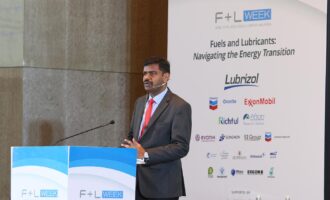
OXCCU completes Series A financing to commercialise SAF technology
OXCCU (pronounced Ox.C.C.U.), a leading carbon-to-value company converting carbon dioxide and hydrogen into industrial and consumer products, has completed a USD22.7 million Series A financing to commercialise cost-effective sustainable aviation fuel (SAF).
OXCCU was spun-out by expert scientists and technologists at the University of Oxford in the UK. Its mission is to address the rapidly growing market demand for fuels to meet SAF regulations as well as for the petrochemicals, surfactants, synthetic lubricants and plastics markets. Leveraging this funding round, OXCCU expects to scale-up the technology, expand its facilities, and double its team in the UK.
The round was led by Clean Energy Ventures with participation from investors Aramco Ventures; Eni Next, the corporate venture arm of Italian energy company Eni; United Airlines Ventures Sustainable Flight FundSM; and Braavos Capital.
Existing investor Kiko Ventures (IP Group’s cleantech investment platform), and the University of Oxford. Trafigura, TechEnergy Ventures and Doral Energy-Tech Ventures also participated in the financing. Leveraging the funding, OXCCU plans to accelerate its path to market by scaling its catalytic approach to convert hydrogen and carbon dioxide into sustainable aviation fuels and other sustainable fuels.
Amid global efforts to decarbonise transportation emissions, attention is turning to aviation, as evidenced by new sustainable aviation fuel mandates from the European Union’s ReFuelEU Aviation Standard to the U.S.’s Renewable Fuel Standard (RFS) and Sustainable Skies Act. Buoyed by increasingly stringent regulations, investors, energy companies and industry are focusing attention on low-cost, innovative and carbon-neutral solutions.
While the SAF market is still in development, jet fuel alternatives are already estimated to be costly as most synthesis processes from carbon dioxide require two capital intensive steps. OXCCU’s technology consolidates the traditional e-hydrocarbons production process from a two-step Reverse Water Gas Shift (RWGS) and Fischer Tropsch (F-T) reaction to a one-step catalytic conversion that offers a radically cost-effective solution.
Available to customers as OXEFUELTM, OXCCU’s sustainable aviation fuel is created by combining captured carbon dioxide and renewably-sourced green hydrogen through a novel iron-based catalyst, resulting in a more cost-effective and decarbonised alternative to fossil-based jet fuel for commercial airlines.
“This breakthrough is exactly what we need to turn the emerging SAF market into reality and cost-effectively cut carbon emissions from fuel production at scale,” said Daniel Goldman, co-founder and managing partner of Clean Energy Ventures.
“OXCCU’s process is unique in the emerging SAF industry based on our evaluation of dozens of technologies. We see extraordinary potential for this technology to mitigate new aviation fuel production emissions at gigaton-scale in the near-future, and we are pleased to lead an extraordinary consortium of industry leaders to support the company in its commercialization and deployment.”
Airlines have consistently maintained that the cost competitiveness of SAF is their biggest barrier to adoption, and based on projected renewable energy costs in key production locations, OXCCU’s technology can achieve cost parity. Modeling completed by independent researchers from Imperial College London, through Imperial Consultants, has shown that OXCCU’s one-step process significantly reduces SAF cost due to higher selectivity yield in the jet fuel range and a 50% lower capital cost.
“Sustainable aviation fuel is the best tool we have to decarbonise air travel, but we continue to face a significant supply shortage,” said United Airlines Ventures President Michael Leskinen. “The technology developed by OXCCU has the potential to resolve our supply problem by using CO2 as a feedstock to produce fuel. This cutting-edge solution could be a cost-effective pathway for United to reach our commitment of net-zero carbon emissions by 2050, without relying on traditional carbon offsets.”
“At OXCCU, we’re inspired by the prospect of crossing the Atlantic using sustainable aviation fuel,” said CEO Andrew Symes. “We’ve built an extraordinary team of senior scientists, engineers and operators, and now backed by this experienced group of investors, we are confident we can scale this technology into a cost-competitive and globally deployable solution to create a sustainable drop-in product for the global aviation market.”









